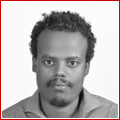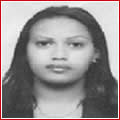The role of African governments in the implementation of the Revised Declaration on freedom of expression online in Africa
Posted: 24 November, 2021 Filed under: Ayowole Olotupa-Adetona, Bitebo Gogo, Imani Henrick, Ogah Peter Ejegwoya | Tags: Access to Information, African Commission on Human and Peoples’ Rights, Declaration of Principles on Freedom of Expression and Access to Information in Africa, domestic laws, freedom of expression, freedom of expression online, human rights, illegitimate restrictions, international human rights standards, Legal reform, multistakeholderism, online content regulation, privacy protection, Regulating online content, right to opinion 3 Comments
Authors: Imani Henrick, Bitebo Gogo, Ogah Peter Ejegwoya & Ayowole Olotupa-Adetona
The rights to freedom of expression, access to information and opinion are three distinct yet interconnected rights. The right to freedom of expression includes overt or covert communication through any medium including the Internet while access to information is being able to get information through any means. Both rights can be limited under international human rights standards. However, the right to opinion which is broader than both rights cannot be limited under international human rights standards.
This article identifies the role of African governments in implementing freedom of expression online. In doing so, it focuses on the provisions of the recent Declaration of Principles on Freedom of Expression and Access to Information in Africa (Revised Declaration) 2019.
Time to consider decriminalising homosexuality in Ethiopia
Posted: 1 October, 2021 Filed under: Rehim Baharu Elala | Tags: anti-gay sentiment, child abusers, consensual same sex relations, conversation, decriminalise, Dr. Daniel Bekele, Ethiopia, Ethiopian values, federal legislation, freedom of expression, gender identity, harassment, homosexuality, Human Rights Watch, imprisonment, no study, political leaders, religion, religious influences, societal influences, societal norms, stigmatisation, violence, Zenebu Tadesse 2 Comments Author: Rehim Baharu Elala
Author: Rehim Baharu Elala
Intern, Ethiopian Community Development Council
LGBT data in Ethiopia
Ethiopia revised its Criminal Code in 2004 and criminalised homosexual or indecent acts both between men and women, with those convicted facing terms of imprisonment.[1] Same-sex acts will be punished with imprisonment of not less than a year, or in ‘grave’ cases, rigorous imprisonment of up to 15 years.[2] The justifications for criminalising the acts are mostly associated with the strict societal norms and religion.
There is no study or research conducted to know the exact number of LGBTQ people in Ethiopia. I interviewed two members of the LGBTQ in Ethiopia who are working in legal and health professions when I was writing a Seminar Paper for my LGBTQ Health Law and Policy class.[3] My informants told me that the estimate data shows that there are around 50,000-60,000 people who identify themselves as LGBTQ in the capital Addis Ababa alone.[4] They also stated that the major source of the anti-gay sentiment originates from the religious authorities.[5] This is because homosexuals are always portrayed in a dangerous manner by the religious institutions as child abusers and destroyers of Ethiopian values.[6] An Ethiopian law professor states the influence of religious groups in the following words:
“There is complete silence around LGBT experiences because there is no forum for stories about the violence meted out by the state and family members on a day-to-day basis… My biggest fear is that these religious organisations are monopolising the conversation and perpetuating a fear that is becoming impossible to combat.”[7]
A human rights approach to internet taxes in Africa
Posted: 17 September, 2019 Filed under: Tomiwa Ilori | Tags: African Charter, bloggers, Communication Service Tax, digital rights, e-commerce, expensive broadband, freedom of expression, freedom of speech, Ghana, ICESRC, ICTs, internet, internet taxation, Kenya, Nigeria, Online Content Regulations, protecting internet rights, right to access information, sub-Saharan Africa, Tanzania, tax, taxation, Uganda, UN Guiding Principles on Extreme Poverty Leave a comment Author: Tomiwa Ilori
Author: Tomiwa Ilori
HRDA Alumni Coordinator/Researcher: Democracy, Transparency and Digital Rights Unit, Centre for Human Rights, University of Pretoria
Due to increasing underdevelopment in sub-Saharan Africa, many governments have looked towards several means to make up for deficits in domestic fiscal planning. One of the means through which governments have financed their budgets is by levying higher taxes on companies and individuals to be able to raise revenue.
While there may be legitimate reasons for states to levy taxes, in order for a tax system to be regarded as good and effective it needs to comply with at least five basic conditions: ensure a beneficial system; transparent in collection and use; less bureaucratic and equitable – every person should pay a fair amount of taxes not injurious to their well-being. While Information and Communications Technologies (ICTs) potentially impact the global economy, not all economies have thrived equally. In most sub-Saharan African countries, the impacts of ICTs have been least felt which damages the prospects of democratic development in the region. Read the rest of this entry »
Uganda’s blasphemy law is unconstitutional
Posted: 19 June, 2019 Filed under: Nimrod Muhumuza | Tags: belief, blasphemy, blasphemy law, constitutional validity, freedom of expression, freedom of religion, freedom of speech, International Religious Freedom, non-religious, religion, religious ideas, Uganda, unconstitutional, violence 7 Comments Author: Nimrod Muhumuza
Author: Nimrod Muhumuza
Lawyer and LLD candidate, Dullah Omar Institute, University of Western Cape
Laws prohibiting blasphemy are astonishingly widespread worldwide with many countries criminalising conduct deemed blasphemous with disparate punishments ranging from prison sentences to lashings or the death penalty. A comprehensive report prepared by the US Commission on International Religious Freedom found that 71 countries prohibit views deemed blasphemous. These laws have dire consequences for those who find themselves on their wrong side as the most recent and much publicised case of Asia Bibi in Pakistan has demonstrated.
South of the Sahara, the report found that only four countries criminalise blasphemy. Uganda did not make that list. This is despite the provisions of Chapter III, sections 118-122 of the Penal Code Act. Sections 118-121 proscribe conduct that involves the destruction or damage or defilement of any place of worship with the intent of insulting the religion; disturbing religious assemblies, trespassing on burial places hindering burial of a dead body. The utility and legality of these provisions is not inherently the protection of religions and religious ideas and their constitutional validity will not be canvassed at this point.
Freedom of expression: Hopes, anxieties and skepticism in Liberia’s nascent democracy
Posted: 2 August, 2018 Filed under: Urias Teh Pour | Tags: constitution, Criminal Libel laws, decriminalise free speech, ECOWAS Treaty, free speech, freedom of expression, Freedom of Information Act, George Manneh Weah, human rights, ICCPR, Konate v. Burkina Faso, Liberia, Liberian Football legend, Ministry of Information, New York Times Co. v. Sullivan, newly elected Governmen, Penal Law, Table Mountain Declaration, UN Human Rights Committee 2 Comments Author: Urias Teh Pour
Author: Urias Teh Pour
Legal Advisor on the Liberia Law Society Land Rights and Freedom of Expression Projects
The recent move to repeal Liberia’s Criminal Libel laws by the newly elected Government of former Liberian Football legend, George Manneh Weah, has been hailed by human rights groups as a positive step in the right direction. The effort to decriminalise section 11.11 of the Penal Law comes barely two months following the visit of the United Nations Special Rapporteur on Freedom of Expression to Liberia. The UN Officials called on the Government of Liberia to review all laws that undermine free speech, as guaranteed by article 19 of the International Covenant on Civil and Political Rights (ICCPR) and other instruments ratified by Liberia.

 Author: Blessing Temitope Oguntuase
Author: Blessing Temitope Oguntuase
 Author: Dércio Tsandzana
Author: Dércio Tsandzana